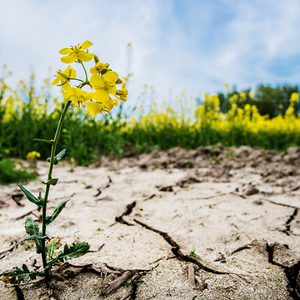SLU is ranked as the third best university in the world in the subject Agriculture & Forestry (Qs Rankings). When tackling climate change, biodiversity loss and food security, the sector Agriculture, Forestry and Other Land Use (AFOLU) play a central role. This disposition is holding both significant capabilities and incisive challenges, where SLU can contribute to effective changes in this cross-sectoral field.
Together with SLU Global, the four Future Platforms of SLU – covering food, forests, urban development and one health – will bring these capabilities and challenges to the table in a series of Climate Conversations. The next upcoming webinar, with the title Climate Change Challenges and Ways Forward for Land Use, is taking place on 18 October. The ambition is to encourage cross-disciplinary conversations and to link research with policy development.
AR6 report - The Physical Science Basis
The first part of the sixth assessment report - AR6 The Physical Science Basis - from the Intergovernmental Panel on Climate Change (IPCC) will form the cornerstone of climate science for the years ahead. Sweden's representative in the IPCC is Markku Rummukainen, professor of Climatology at Lund University. He will be the first keynote speaker at the Climate Conversation webinar in October. Markku will talk about the comprehensive global mission of the U.N. Climate Panel, share insights from the process of the working group, and present some of the main conclusions from the AR6 report.
On the frontline of the climate crisis
The world’s most vulnerable nations are already suffering from the impacts of climate change, which is why these countries are among the strongest advocates for more robust action. Saleemul Huq, Director of the International Centre for Climate Change and Development (ICCCAD) and Professor at the Independent University Bangladesh (IUB) is an expert in adaptation to climate change. He has been recognised as one of the top global influencers on climate change policy, and is leading a Nature-based Solutions network, bringing together local knowledge, ideas and technology. Saleemul will help us understand a vulnerable country perspective. What are the main impacts of climate change in Bangladesh and how are the vulnerable nations responding to the new report?
Communication is key
In order to better understand the drivers of everyday decision-making of people in the landscape, and the strategies they employ, be it city dwellers, farmers or private forest owners, two-way communication between experts and the target audience, as well as advanced data analysis, is needed.
Professor Kristina Blennow, from the Department of Landscape Architecture, Planning and Management at SLU, will present some of her research directed towards Landscape Analysis, in particular Risk Analysis and Climate Change. She emphasizes that climate change communication must meet the needs of the receivers and she believes SLU has a lot to offer here.
– The challenge is to identify the communication needs of groups of people, and to use the new knowledge on communication needs to develop guidelines for adequate communications with them, says Kristina.
Future land use
The focus of the October webinar will be on future land use. Erik Karltun, researcher at the SLU Department of Soil and Environment, is a member of a team that compiles the Swedish reporting of green-house gas emissions and uptake from land-use based on national environmental monitoring data. He will reflect on SLU’s role in the field of future land use.
– SLU’s strength is our position as a sector university that combine knowledge in agricultural and forestry production with strong research on environmental and social aspects of land-use, says Erik Karltun.
– Through research and monitoring, we can provide technical solutions as well as the knowledge needed for the shaping of evidence-based policies. Maybe most importantly - at SLU we foster the new generation of professionals needed for the solution to the climate crisis, he adds.
